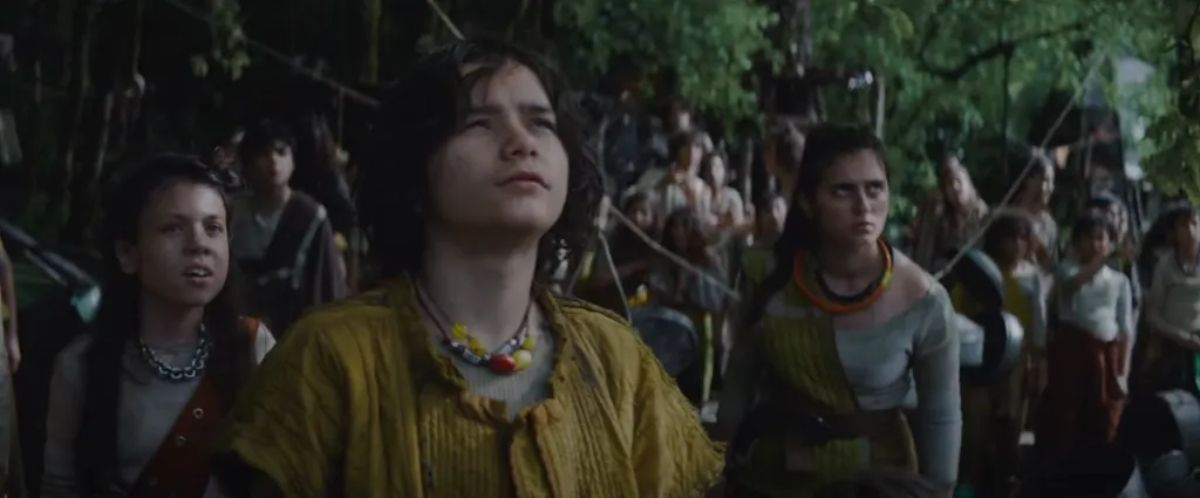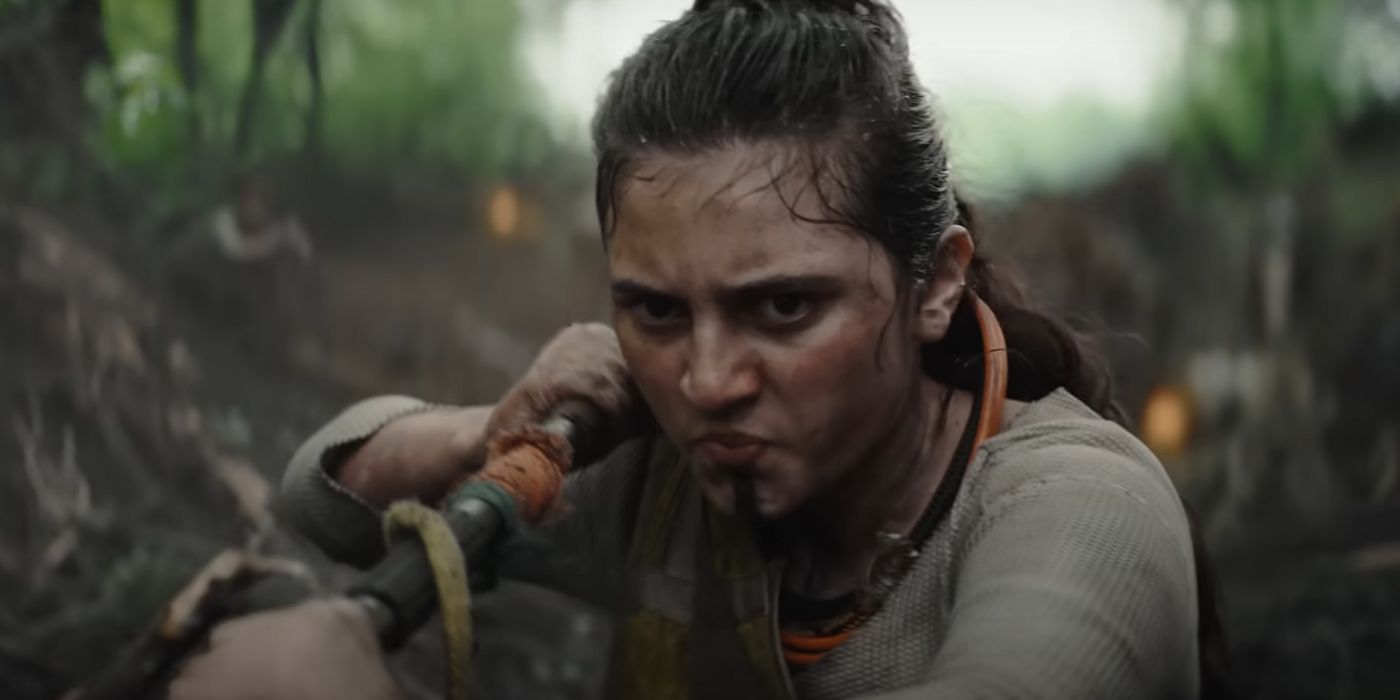Editor's Note: The following article contains spoilers for Episodes 1-3 of Andor.There are millions of cultures and peoples in the world of Star Wars, and we’ve gotten to know many of them over the past few decades of stories. Our newest addition to that extensive list came in the form of the Kenari in Andor. The Kenari are a group of people from a planet of the same name, and we learn that Cassian Andor (Diego Luna) was originally from this planet as well. But unlike so many of the cultures we’re introduced to in the Star Wars universe, the Kenari seem completely disconnected from the larger happenings of the galaxy and the Empire. When an Imperial ship plummets through their atmosphere the Kenari look at it with awe and fear before going to investigate what it is, unaware that they’re about to be unwittingly pulled into the fold of a cosmic war. Through flashbacks, we see Cassian (originally called “Kassa”) and his sister in their childhood as their village prepares to go investigate the wreckage, all the while characters talk to each other in Kenari which the show does not translate for us. We’re introduced to the Kenari as a total outsider, and thus we don’t get to know what their words actually mean. This choice to not translate for us may at first seem frustrating but in truth it helps to illuminate even more about the Kenari and their place in the galaxy.
This is far from the first time Star Wars has decided to not give captions for characters speaking another language. Chewbacca’s been speaking in incomprehensible trills since the very beginning and, similarly, R2-D2 has an expansive vocabulary we aren’t privy to. But the other characters respond in a language we as the audience can understand, the languages that are unfamiliar to us are commonplace in a galaxy far, far away. So even if the exact words are lost on us we can figure out the meaning through context. The Kenari are a departure from this. Not only are they humanoids who don’t speak what seems to be the universal language of all humans we’ve met so far, when they speak their language to others, they are not understood. We get no captions, only the context in which the words are spoken to base our understanding on.
The Kenari Are Outliers From Everything We've Seen So Far
The lack of translation does wonders in telegraphing the most important thing about the Kenari: they are wholly uninvolved in every conflict we have seen so far. These people have existed independently with their own culture and language and though we don’t know for how long, we know that freedom and safety are about to be destroyed as they’re pulled into the Empire’s line of fire. The Kenari are not like other peoples we have met in Star Wars, speaking other languages but still fully involved in the affairs of the galaxy at large, they have seemingly been living their own lives unaware of the massive wars being waged overhead.
It helps to show us as an audience how they are in over their heads because we know how violent the Empire can be, but they are only just finding out. Without translations, we can’t know the Kenari’s intentions just as they don’t know the intent of the officers that crashed on their planet until one of those officers starts shooting lasers at them. It’s a situation of mutual misunderstanding and providing the audience with the same language barrier as the characters
This isn’t to say that we can’t understand what the Kenari are saying at all. Even with no translations, actions, body language, and context are enough to show us what is happening even if we don’t understand the exact details. The lack of translation is not to paint the Kenari as lesser but as other, something completely outside the Star Wars we know and crushing any assumptions on the universality of the Empire and the language it largely uses. We don’t get to be privy to their language or details of their culture because it’s been decimated by the ill-timed arrival of some shipwrecked Imperial officers.
The Kenari Are Dragging Into the Galactic Conflict
For so long it’s been easy to assume that everyone in Star Wars is on the same page. The reach of this civilization and its many species and cultures enough to make up the Republic and later the Empire has always been all encompassing for the stories we encounter. But the Kenari show us that our assumptions are false. There were still people living independently of Empire rule but, like with real world imperialism, as the Empire’s reach expanded so too did other peoples come into conflict with them only to be subsumed by them. The language of the Kenari is lost on us because they were not given the option of integrating into the larger galactic world but instead forced into it and made others by it. It's noteworthy that Cassian's original name, "Kassa", is the only word we get translated because Cassian is at this point in the narrative the last vestige of the Kenari. His name is all that is preserved through time. Other than the recognizable sound of his name, the rest is lost on us.
The language barrier also creates a sense of vulnerability. There’s some dramatic irony at play when the Kenari are introduced as we know more about what’s been happening in the larger galaxy scale than they do. So we watch the Kenari march off to investigate the fallen Imperial ship knowing it can only end in disaster. The language barrier can easily lead to misunderstandings and nearly eliminates the possibility of a peaceful resolution. Without translations we as the audience feel this vulnerability as we see Cassian confront Maarva (Fiona Shaw) on the crashed ship, completely unaware of what he’s stumbled into. We see clearly how out of his depth he is in this new situation and how difficult the coming challenges will be.
The Kenari didn’t have a choice in their involvement in the narrative, yet they are still actively transformed by it. We see that in Cassian shedding the language of his people to adopt the standard dialect of the galaxy and in Maarva’s sureness that Cassian would be killed if he remained on Kenari. Once you have been brought into the fold, even unwittingly, there is no turning back. And so that language is lost to us as an audience because the Kenari have been overrun by the Empire. The choice to not translate the Kenari for us only highlights their distance from the narrative as we know it and their unfortunate fate to be pulled into the orbit of something far beyond their control. We learn much more about the Kenari’s place in the galaxy through the lack of translations by allowing us as an audience to simulate their experience of first contact with a world beyond their imagination.


No comments:
Post a Comment